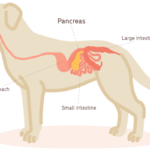Introduction
Efficient delivery management has emerged as a key to success in today’s fast-paced, customer-driven economy. From the minute a consumer puts an order online to the time it reaches their door, the entire process is dependent on a sophisticated network of logistics and operations. Businesses across a wide range of sectors recognize that delivery speed, precision, and dependability are more than simply operational concerns; they are important components of their value offering. This awareness has prompted the widespread use of best delivery management systems (DMS) as a critical tool for controlling and optimizing these operations.
Delivery Management Software is a complete digital platform that monitors, controls, and streamlines the whole delivery process, from order placement to final delivery. To improve the efficacy and efficiency of delivery operations, these systems integrate several cutting-edge features, such as electronic proof of delivery, automated scheduling, real-time tracking, and route optimization. A DMS integrates these characteristics, allowing organizations to better manage high volumes of deliveries, minimize operating costs, and increase customer satisfaction.
This article digs into the sectors that are enjoying the most advantages from deploying Delivery Management Systems. We’ll look at how diverse industries—from e-commerce and retail to healthcare and logistics—are using DMS technology to tackle specific difficulties and gain a competitive advantage. Furthermore, we will examine case studies, expert perspectives, and future developments in DMS technology to provide a thorough understanding of its effect and potential.
What is a Delivery Management System?
A Delivery Management System is an advanced software solution designed to manage the complex logistics of goods and services. These systems are equipped with a wide range of functionalities that address every stage of the delivery process, ensuring that orders are fulfilled efficiently, accurately, and on time.
Definition and Core Functionalities
At its core, a DMS is designed to automate and optimize the delivery process. This includes managing orders, planning and optimizing routes, tracking deliveries in real-time, and ensuring that deliveries are completed with accurate documentation. Here are some of the key functionalities that define a DMS:
- Order Management: A DMS automates the process of receiving, organizing, and prioritizing delivery orders, allowing businesses to handle large volumes of orders with ease.
- Route Optimization: This feature calculates the most efficient delivery routes based on factors such as distance, traffic, and delivery windows, helping to minimize fuel consumption and reduce delivery times.
- Real-Time Tracking: A DMS provides real-time visibility into the location of delivery vehicles, allowing businesses to monitor progress and provide customers with accurate delivery updates.
- Proof of Delivery: This functionality captures electronic signatures, photos, or other forms of confirmation to verify that a delivery has been completed.
How a DMS Differs from Traditional Delivery Methods
Traditional delivery methods often rely on manual processes, static routes, and limited visibility into delivery operations. This can lead to inefficiencies, such as missed deliveries, increased fuel costs, and poor customer satisfaction. In contrast, a DMS leverages technology to automate and optimize every aspect of the delivery process. By using data-driven algorithms and real-time information, a DMS can dynamically adjust routes, provide accurate delivery estimates, and reduce the likelihood of errors. This makes DMS a far more efficient and reliable solution for managing deliveries in today’s fast-paced business environment.
E-commerce and Retail
The e-commerce and retail industries have undergone a massive transformation in recent years, driven by the growing demand for online shopping. As consumers increasingly expect fast, reliable, and cost-effective delivery options, businesses in these sectors face mounting pressure to optimize their delivery operations. This is where a Delivery Management System can make a significant impact.
Growth of Online Shopping and Its Impact on Deliveries
The rise of e-commerce has fundamentally changed the way consumers shop and how businesses operate. Online shopping has become the norm for millions of consumers, who now expect a seamless and speedy delivery experience. This shift has placed enormous pressure on retailers to not only manage large volumes of orders but also to meet tight delivery windows. Failure to do so can lead to customer dissatisfaction, negative reviews, and ultimately, lost business.
Benefits of DMS in E-commerce and Retail
- Enhanced Delivery Speed: A DMS enables retailers to offer faster delivery options, such as same-day or next-day delivery, which are increasingly in demand.
- Improved Accuracy and Efficiency: Automated order management and real-time tracking reduce the chances of errors, ensuring that deliveries are made accurately and on time.
- Cost Reduction: By optimizing delivery routes and reducing fuel consumption, a DMS helps retailers lower their delivery costs, allowing them to offer competitive pricing or free delivery options to customers.
- Better Customer Experience: A DMS allows retailers to provide customers with real-time updates on their delivery status, improving transparency and satisfaction.
Food and Beverage
The food and beverage industry is one of the most challenging sectors when it comes to delivery logistics. Unlike other products, food items are often perishable and time-sensitive, requiring fast and accurate delivery to maintain quality and ensure customer satisfaction. A Delivery Management System is essential for businesses in this industry to overcome these challenges.
Challenges in Food Delivery Logistics
Delivering food and beverages presents unique challenges that are not typically encountered in other industries. These challenges include:
- Perishability: Food items, particularly fresh produce, dairy, and prepared meals, have a limited shelf life, making timely delivery crucial.
- Temperature Sensitivity: Many food items require temperature-controlled transportation to ensure they remain safe and fresh during delivery.
- High Order Volumes: Popular restaurants and food delivery services often need to manage a high volume of orders, particularly during peak hours, which can strain delivery operations.
- Customer Expectations: Consumers expect their food to arrive quickly and in perfect condition, making delivery speed and accuracy critical to customer satisfaction.
How DMS Improves Food Delivery Efficiency
- Real-Time Tracking: A DMS provides real-time tracking of delivery vehicles, allowing businesses to monitor the status of each order and ensure that deliveries are made within the specified time window.
- Temperature Monitoring: Some advanced DMS solutions offer temperature tracking for refrigerated or heated deliveries, ensuring that food items remain at the correct temperature throughout the journey.
- Dynamic Route Optimization: A DMS can dynamically adjust delivery routes based on real-time traffic conditions, ensuring that drivers take the fastest and most efficient route to their destination.
- Order Prioritization: A DMS can prioritize orders based on factors such as delivery time, distance, and the type of food being delivered, ensuring that time-sensitive orders are handled first.
Real-World Example: DMS in a Food Delivery Service
A leading global food delivery service was facing difficulties in managing its growing order volumes and ensuring timely deliveries. The company implemented a DMS to streamline its operations and enhance efficiency. The DMS provided real-time tracking of delivery drivers, allowing the company to monitor their progress and make adjustments as needed. Additionally, the system’s route optimization feature helped drivers navigate through traffic more effectively, reducing delivery times.
The DMS also monitored orders that required specific temperature conditions, such as frozen desserts or hot meals. This ensured that food arrived in perfect condition, leading to higher customer satisfaction. Following the implementation of the DMS, the food delivery service reported a 25% accumulation in delivery speed and a 15% improvement in customer ratings.
Healthcare and Pharmaceuticals
The healthcare and pharmaceutical industries operate in an environment where timely and accurate deliveries are not just a matter of convenience but a critical necessity. Whether it’s delivering life-saving medications or medical equipment, the stakes are incredibly high. A Delivery Management System plays a vital role in ensuring that these deliveries are handled with the utmost care and precision.
The Critical Nature of Timely Deliveries in Healthcare
In healthcare, the timely delivery of medical supplies, pharmaceuticals, and equipment can be a matter of life and death. Delays in these deliveries can lead to serious consequences, including the interruption of medical treatments, the unavailability of essential medications, and even the risk of patient harm. Therefore, healthcare providers and pharmaceutical companies must ensure that their delivery processes are as efficient and reliable as possible.
DMS in the Pharmaceutical Industry
The pharmaceutical industry faces unique challenges in its delivery operations. Medications often require strict adherence to temperature controls, secure handling, and precise delivery timings to ensure their efficacy and safety. A Delivery Management System can address these challenges in several ways:
- Temperature-Controlled Deliveries: A DMS can monitor and manage the temperature of pharmaceutical deliveries in real time, ensuring that medications are transported under the required conditions.
- Compliance and Security: DMS platforms can help ensure compliance with regulatory requirements, such as tracking controlled substances and maintaining detailed records of each delivery.
- Timely Deliveries: By optimizing routes and schedules, a DMS can ensure that medications and medical supplies are delivered on time, minimizing the risk of treatment delays.
Manufacturing and Distribution
Manufacturing and distribution are highly complex industries that rely on precisely coordinating supply chains, production schedules, and delivery logistics. A Delivery Management System is essential for ensuring that raw materials and finished goods are delivered exactly when and where they are needed, minimizing downtime, and optimizing production processes.
The Role of DMS in Supply Chain Management
Supply chain management in manufacturing involves coordinating the flow of materials and products from suppliers to production facilities and ultimately to customers. Delays or disruptions at any point in this chain can have a ripple effect, leading to production delays, increased costs, and dissatisfied customers. A DMS helps manufacturers manage this complexity by:
- Coordinating Supplier Deliveries: A DMS can manage and optimize the delivery of raw materials from suppliers, ensuring that production lines are continuously supplied without overstocking or shortages.
- Optimizing Production Schedules: By aligning deliveries with production schedules, a DMS ensures that materials arrive just in time for manufacturing, reducing the need for costly storage and inventory management.
- Managing Outbound Deliveries: A DMS can also manage the distribution of finished goods, ensuring that they are delivered to customers or distribution centers efficiently and on time.
Enhancing Manufacturing Efficiency Through DMS
- Reduced Downtime: By ensuring the timely delivery of raw materials and components, a DMS minimizes production downtime caused by supply chain disruptions.
- Cost Efficiency: Optimized routing and real-time tracking reduce transportation costs, minimize delays, and enhance overall efficiency.
- Improved Supplier Coordination: A DMS can integrate with suppliers’ systems, providing visibility into their delivery schedules and allowing for better coordination and planning.
DMS in a Manufacturing Setting
A large automotive manufacturer adopted a DMS to manage the delivery of parts and components from multiple suppliers. The system’s integration with their existing inventory and warehouse management platforms allowed for precise coordination of deliveries. As a result, the manufacturer experienced a 20% reduction in production downtime, leading to significant cost savings and improved productivity.
Logistics and Transportation
The logistics and transportation industry is the backbone of global trade, responsible for moving goods across cities, countries, and continents. Efficient delivery management is crucial in this sector to ensure that goods arrive on time, in good condition, and at the lowest possible cost.
How DMS Enhances Transportation and Logistics Operations
- Fleet Management: A DMS provides comprehensive tools for managing large fleets, including vehicle maintenance schedules, driver assignments, and fuel usage monitoring.
- Real-Time Tracking: Continuous tracking of shipments helps logistics companies provide accurate delivery estimates and improves customer communication.
- Compliance and Safety: A DMS can help ensure that transportation operations comply with regulations, such as hours-of-service rules and safety standards.
DMS in a Logistics Company
A global logistics provider implemented a DMS to manage its extensive fleet of trucks and drivers. The system’s real-time tracking and automated routing capabilities enabled the company to improve delivery times by 15% while reducing fuel consumption by 10%. Additionally, the DMS helped the company achieve better compliance with safety regulations, reducing the risk of accidents and penalties.
Field Services and Maintenance
Field services, such as maintenance, repair, and installation, often require technicians to travel to various locations, making efficient route planning and job scheduling critical. A DMS can significantly improve the management of field service teams by ensuring that technicians arrive on time and are equipped with the right tools and information.
Challenges in Managing Field Service Teams
Field service operations present unique challenges, including the need to manage a dispersed workforce, coordinate multiple jobs in different locations, and ensure that technicians have the necessary tools and information to complete their tasks efficiently. Traditional methods of managing field services often involve manual scheduling and communication, which can lead to inefficiencies, missed appointments, and frustrated customers.
DMS Applications in Field Service Operations
- Job Scheduling: A DMS can automate the scheduling of service calls based on technician availability, location, and skill set, ensuring the right person is sent to the right job.
- Route Optimization: By optimizing travel routes, a DMS reduces travel time between jobs, allowing technicians to complete more tasks in a day.
- Real-Time Updates: Technicians can receive real-time updates and instructions via mobile devices, improving communication and reducing errors.
- Customer Communication: A DMS can provide customers with real-time updates on the status of their service appointments, improving transparency and satisfaction.
DMS Transforming Field Service Management
A leading HVAC service company implemented a DMS to manage its team of technicians. The system’s automated scheduling and route optimization features allowed the company to increase the number of service calls handled by each technician by 20%. Additionally, customer satisfaction improved due to more timely arrivals and better communication.
Expert Insights on Delivery Management Systems
Industry experts emphasize the growing importance of DMS technology in various sectors. According to logistics analysts, the adoption of DMS is expected to increase as companies seek to improve efficiency and reduce costs in an increasingly competitive market.
Perspectives from Industry Experts
- Efficiency Gains: Experts highlight that DMS solutions can reduce operational inefficiencies, leading to significant cost savings.
- Customer Satisfaction: A well-implemented DMS can greatly enhance customer experience by providing accurate delivery times and improving communication.
- Scalability: As businesses grow, DMS platforms can scale to manage increasing volumes of deliveries, making them a valuable long-term investment.
The Impact of DMS on Business Operations
Industry leaders from various sectors, including e-commerce, logistics, and healthcare, have shared their insights on the transformative impact of DMS on business operations. They emphasize that DMS technology not only streamlines delivery processes but also provides valuable data insights that can drive strategic decision-making.
For instance, a logistics expert from a leading global shipping company pointed out that DMS allows businesses to analyze delivery patterns and customer behavior, enabling them to optimize their operations and better serve their customers. Similarly, a healthcare executive highlighted the role of DMS in ensuring the timely delivery of critical medical supplies, which is essential for maintaining the quality of patient care.
Future Trends in DMS
The future of DMS technology is likely to be shaped by advancements in artificial intelligence (AI) and machine learning (ML). These technologies can further enhance route optimization, predictive maintenance, and demand forecasting, making delivery operations even more efficient and responsive to customer needs.
- AI-Powered Route Optimization: AI-driven algorithms can optimize delivery routes in real time based on a vast array of factors, including traffic conditions, weather, and customer preferences.
- Predictive Analytics: By analyzing historical data, DMS platforms can predict potential delivery delays and suggest proactive measures to mitigate them.
- Integration with Autonomous Vehicles: As autonomous delivery vehicles become more prevalent, DMS platforms will play a crucial role in coordinating and managing these vehicles within the broader logistics network.
- Future Outlook of Delivery Management Systems
The future of Delivery Management Systems is bright, with rapid technological advancements poised to transform the way deliveries are managed across industries. As businesses continue to prioritize efficiency, customer satisfaction, and cost reduction, DMS technology will become increasingly integral to their operations.
Technological Advancements in DMS
- Artificial Intelligence and Machine Learning: AI and ML will continue to play a significant role in enhancing DMS capabilities, enabling more accurate predictions, smarter route optimization, and improved decision-making.
- Internet of Things (IoT) Integration: IoT devices, such as smart sensors and connected vehicles, will provide real-time data that can be integrated into DMS platforms to improve tracking, monitoring, and management of deliveries.
- Blockchain Technology: Blockchain can enhance the security and transparency of delivery operations by providing an immutable record of transactions and deliveries, reducing the risk of fraud and errors.
The Impact of AI and Machine Learning on DMS
AI and ML are set to revolutionize Delivery Management Systems by making them more intelligent and adaptive. These technologies can analyze vast amounts of data to identify patterns and trends, enabling businesses to optimize their delivery operations in real time. For example, AI-driven DMS platforms can predict traffic congestion and suggest alternative routes, ensuring that deliveries are made on time, even in challenging conditions.
Future Challenges and Opportunities for DMS
While the future of DMS is promising, there are also challenges that businesses will need to address. These include the need for robust data security measures, the potential impact of regulatory changes, and the ongoing need to adapt to evolving customer expectations. However, these challenges also present opportunities for innovation and growth, as businesses that effectively leverage DMS technology will be better positioned to thrive in a competitive marketplace.
Conclusion
Delivery Management Systems have become indispensable tools for businesses across a wide range of industries. From e-commerce and retail to healthcare and logistics, DMS technology is helping companies streamline their delivery operations, reduce costs, and improve customer satisfaction. As technology continues to evolve, the capabilities of DMS platforms will only expand, offering even greater potential for efficiency
Feel free to submit more guest posts through Links Building Servcies - Best Prices. Buy Author Account / 1$ Guest Post Here






















